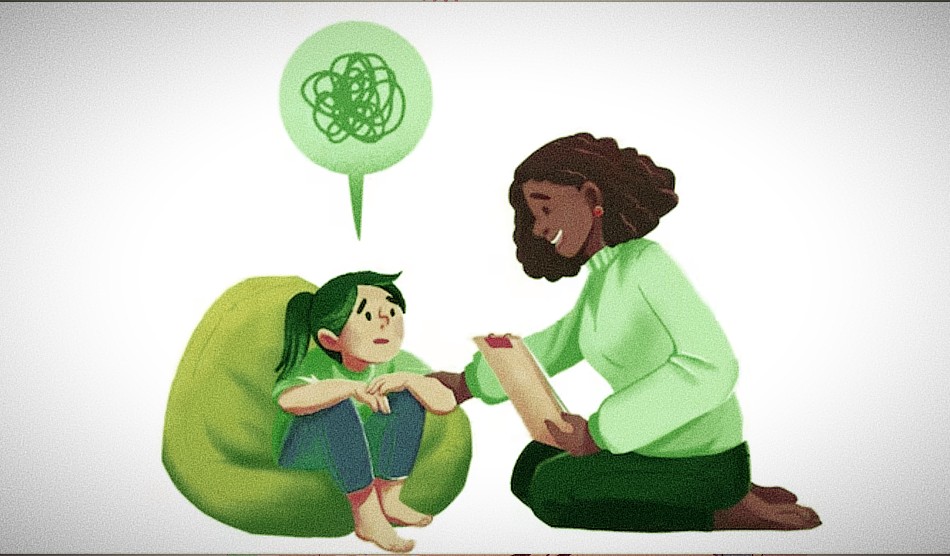Childhood is a time of incredible growth, development, and learning. However, it's also a period during which children may face challenges that impact their emotional well-being. Child counselling therapy plays a crucial role in helping children navigate these challenges and develop the emotional skills they need for a healthy, happy future. In this blog, we'll explore why children benefit from eclectic counselling and how it can provide personalized, effective support tailored to their unique needs.
Child counselling therapy is a specialized form of mental health support tailored to the unique needs of young individuals. It is essential to recognize that children can experience emotional and behavioral challenges just like adults, but they often lack the language and coping mechanisms to express and manage these issues.
Therapy for children encompasses various approaches, with eclectic counselling being particularly beneficial for children. Eclectic counselling involves drawing from multiple therapeutic techniques to create a personalized and flexible approach that suits the child's specific needs. It adapts to the child's age, developmental stage, and the issues they are facing. Children face a wide range of emotional challenges, such as:
1. Anxiety - Anxiety can manifest in various forms, from generalized anxiety to specific phobias. It's vital to address anxiety in children early to prevent it from interfering with their development.
2. Depression - Depression can affect children as well, and it's not just a condition exclusive to adults. Therapy can help them understand and cope with their feelings of sadness.
3. Behavioral Issues - Children may exhibit challenging behaviors, such as defiance or aggression, which can disrupt their home and school lives. Therapy can help identify the underlying causes and develop strategies for improvement.
4. Trauma - Children may experience traumatic events that leave emotional scars. Therapy provides a safe space for children to process their experiences and heal.
5. Family Transitions - Changes like divorce, blended families, or the arrival of a new sibling can be challenging for children. Counselling can help them adapt to these transitions and express their feelings.
Why eclectic counselling for children? Counselling offers a wide range of advantages when it comes to therapy:
1. Tailored Approach
One of the most significant benefits of eclectic counselling is its adaptability. Therapists can select the most appropriate techniques and strategies for each child's unique needs. This ensures a highly individualized approach.
2. Flexibility
Children's emotional needs can change as they grow and develop. Eclectic counselling allows therapists to adjust their approach as needed, ensuring that the therapy remains effective throughout a child's developmental stages.
3. Engagement
Children tend to respond well to eclectic counselling because it often incorporates play and creative techniques. This makes therapy engaging and less intimidating for young minds.
4. Holistic Healing
Eclectic counselling takes a holistic approach to child therapy, addressing emotional, social, and cognitive aspects of a child's life. This comprehensive focus supports overall emotional well-being.
5. Building Resilience
Through eclectic counselling, children learn emotional coping skills, resilience, and healthy ways to express their feelings. These skills are invaluable for their future mental health and happiness.
In therapy for children, individuals can anticipate a comprehensive approach encompassing several crucial components. Firstly, the therapist initiates the process by conducting a thorough assessment of the child's unique needs, behaviors, and potential underlying issues. For younger children, play therapy emerges as a potent tool, providing a creative platform for expression and healing. Conversely, older children may participate in talk therapy sessions, allowing them to delve into and articulate their emotions and confront their challenges more openly. Cognitive-behavioral techniques play a pivotal role, in aiding children in recognizing and altering detrimental thought patterns and behaviors. Additionally, family involvement is a key element, as family therapy may be incorporated to address familial dynamics and establish a supportive environment, fostering holistic growth and well-being in the child. Child counselling therapy, particularly the eclectic approach, offers numerous benefits, including:
- Improved Emotional Resilience: Children learn how to cope with difficult emotions and navigate challenges more effectively.
- Enhanced Communication Skills: Therapy helps children express their feelings and needs more clearly.
- Positive Behavioral Changes: Children often exhibit better behavior at home and school as they develop healthier coping mechanisms.
- Greater Confidence: Children become more self-assured as they understand and manage their emotions.
- Stronger Family Bonds: Family therapy can improve communication and strengthen relationships within the family.
Child counselling therapy, particularly when utilizing an eclectic approach, plays a vital role in nurturing the emotional well-being of children. It addresses the diverse emotional needs and challenges children face as they grow and develop. By providing a tailored, flexible, and engaging approach to therapy, it equips children with the skills and resilience they need to lead happy and fulfilling lives. Therapy for children is an investment in a child's future, empowering them to thrive in the face of life's challenges.

